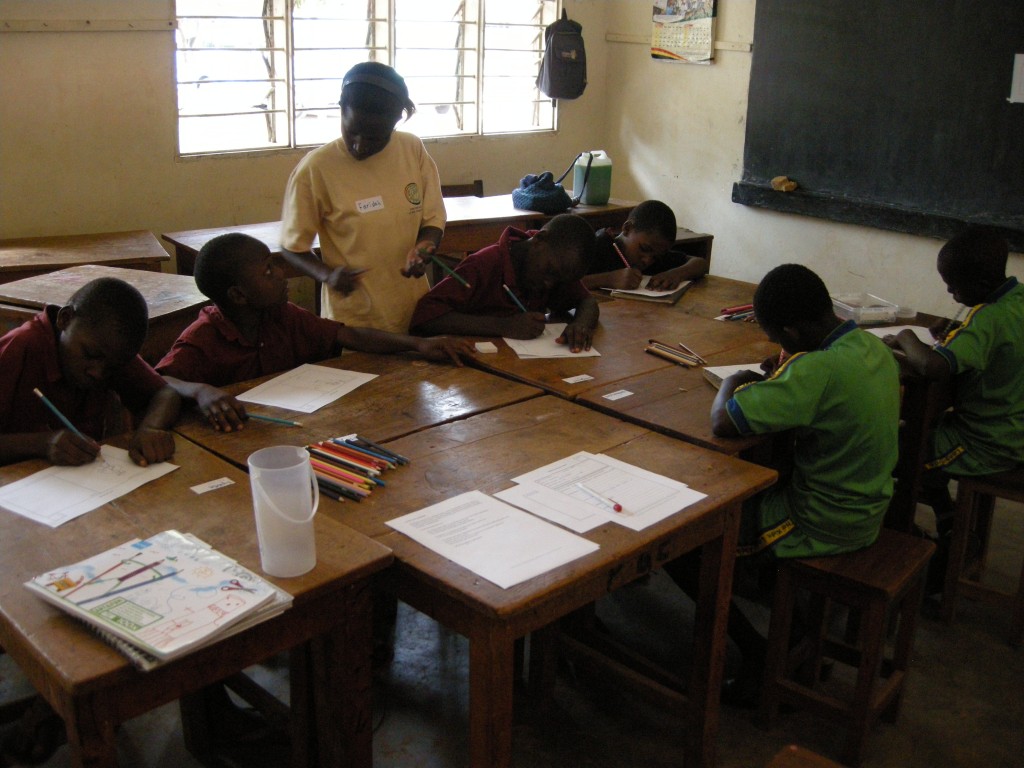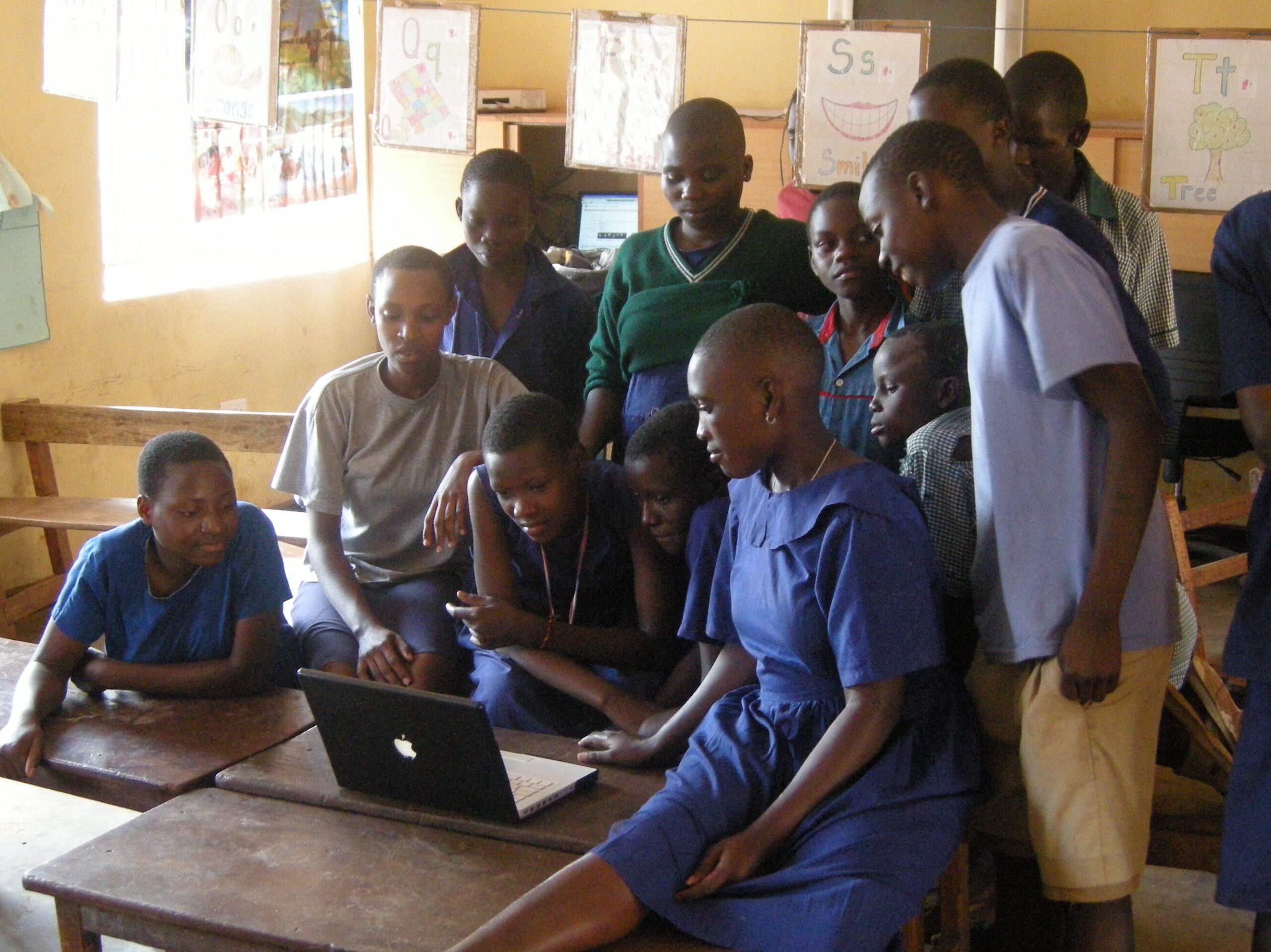In 2012 I conducted the fieldwork for my MSc thesis in International development in Uganda. Researching the different forms of exclusion Deaf children and their families experience, and how this affects their right to a quality education.
Using varying participatory methods, designed to allow Deaf children to share their stories regardless of their language skills, I was able to get the perspective of children from all grades in primary education.
These methods included various drawing exercises and a photography project. With parents, focus-group discussions were combined with methods adapted from Participatory Rural Appraisal methods. Interviews and questionnaires were conducted with teachers and other key stakeholders. This large amount of qualitative data was combined with a quantitative analysis of school registration data.

The research showed that besides the expected academic advantages to attaining an education, for Deaf children and their parents, education also solidified deaf childrens’ position in society. Allowing them to meet the cultural and societal expectation the community has of children.
The second outcome of the research is the fear parents have for the safety of their children, they especially fear sexual abuse of their children. Parents report how they lack the sign language skills to communicate with their children effectively to help prevent abuse. Neither are they able to communicate with their children once their is a suspicion of abuse., or when children want to communicate about inapropriate behaviour When it comes to reporting abuse to the authorities, they know that their children will not be heard or believed.
Thirdly, the research showed that Deaf children and their parents face social exclusion on an alarming scale. Excluding them from cultural life, economic stability, and social structures of support.

Several of the children who participated in the research also participated in a follow-up video project in which 2 clips for UNICEF’s It’s about ability youth video contest. The videos were made during a workshop at their school, the students decided on what to film, planned, rehearsed and filmed all material and were in control of editing the final piece. All children are between 12-15 years of age and are in Primary 5&6.
I am grateful for the hospitality of the schools and the willingness of the children and their parents to work with me. Through the work I do and by sharing the stories they shared with me, I set out to contribute to quality education for all. Like all children Deaf children deserve a free quality education, and to be free from stigma or abuse. Deaf children are part of the diversity of human kind and we have a shared duty to ensure they are safe, free, and can thrive.
This research was presented at the International Conference on the Education for the Deaf, 2015 in Greece, as well as the World Congress of the World Federation of the Deaf, 2015 in Istanbul. The story of parents regarding the safety of deaf children was shared during a Special Interest session SRHR in the House of Representatives in the Netherlands on the 19th of January 2017.